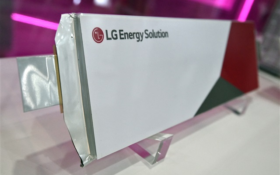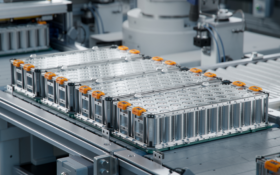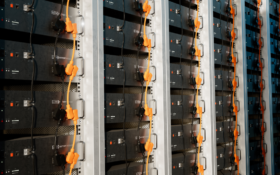The US’ drive to develop a domestic lithium battery supply chain now includes a $5 million government funded initiative to support the “automotive communities” and advance workforce partnerships between industry and labour.
The national workforce development strategy for lithium battery manufacturing was launched by the U.S. Department of Energy (DOE), in coordination with the U.S. Department of Labor and The American Federation of Labor and Congress of Industrial Organizations (AFL-CIO).
The investment will support up to five pilot training programs, which will bring together manufacturing companies, organised labour, and training providers to lay the foundation for the development of a broad national workforce strategy.
The pilots will support industry-labour cooperation and provide sites for job task analyses and documenting worker competencies.
Insights gained will support the development of national industry-recognised credentials and inform the development of broader training programs to support the overall battery supply chain.
It is hoped the initiative will support the US’ global competitiveness within battery manufacturing while strengthening its domestic economy and clean energy supply chains.
US secretary of energy Jennifer Granholm said American leadership in the global battery supply chain would be based not only on its innovative edge, but also on a skilled workforce of engineers, designers, scientists, and production workers.
US senator Joe Manchin, chairman of the Senate Energy and Natural Resources Committee, said: “While I remain concerned about our dependence on China and other foreign countries for key parts of the lithium-ion battery supply chain, engaging our strong and capable workforce to manufacture batteries domestically is a critical step toward reducing our reliance on other countries and ensuring we are able to maintain our energy security.”
Ongoing funding into batteries
This latest funding follows two DOE Notices of Intent in February, and is authorised by the Bipartisan Infrastructure Law to provide $3 billion to support projects that boost the US’ domestic battery manufacturing and recycling industry.
The funding, which will be made available in the coming months, will support battery-materials refining, which is aimed at growing domestic refining capacity of minerals such as lithium, as well as production plants, battery cell and pack manufacturing facilities, and recycling facilities.
Recent reports underscore the need for America to develop and sustain a robust workforce for the domestic battery supply chain, including the President’s 100-Day Supply Chain Review and DOE’s Supply Chain Review for the Energy Sector Industrial Base.
Last year, the Federal Consortium for Advanced Batteries published the National Blueprint for Lithium Batteries 2021-2030, which calls for the United States and its partners to establish a secure battery materials and technology supply chain by 2030.












